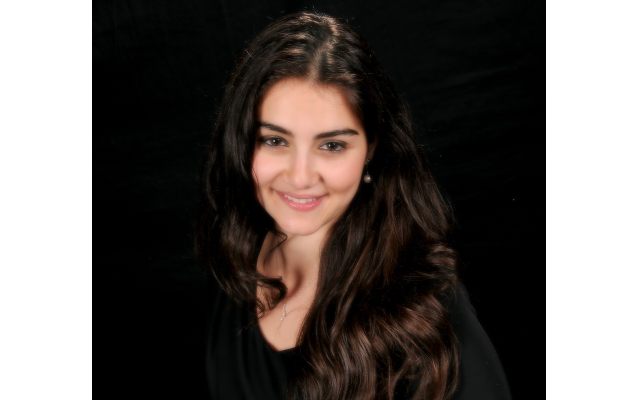Ovshey Shines Light on Speech and Language
As a certified SLP, Nancy Saufer Ovshey offers tips parents may use to better understand their children’s communication and learning.
After 37 years with the Atlanta Journal-Constitution and now with the AJT, , Jaffe’s focus is lifestyle, art, dining, fashion, and community events with emphasis on Jewish movers and shakers.

Nancy Saufer Ovshey, wife and mother of two, specializes in pediatric speech-language pathology. She completed her master’s degree in the specialty at Queens College in New York, as well as an additional year of clinical fellowship before moving to Sandy Springs.
As a certified SLP, she offers tips parents may use to better understand their children’s communication and learning. “At an early age parents can talk to them, read to them, show pictures, and treat them as equal conversational partners. It may seem like infants are not hearing or understanding, but their brains are like sponges. They are absorbing an enormous amount, even if it doesn’t appear that way.”
She continues, “A child typically says first words around 12 months, although it varies. Parents can evaluate prerequisites to verbal communication beginning at [birth] to 3 months, including smiling, eye contact, gesturing and babbling. A pediatrician should look for both precursors to language and language itself at checkups. Parents should advocate for their child with any concerns.”
AJT: Beyond words, are there other communication issues that are indicators of a child’s development?
Ovshey: Since people often leave out the “language” part in “speech-language pathologist,” many people think that speech-language therapists only deal with articulation issues. There is much more to our role. Speech refers to how we make sounds using the mouth, lips and tongue. Speech includes articulation, voice and fluency. Language refers to the words we use and how we use them to share ideas. Language is broken down into receptive (comprehension), expressive (expression), and pragmatic (social) language. Reading and writing are language skills that could be affected and require treatment.
AJT: Do schools offer support?
Ovshey: Early identification and treatment of speech-language disorders greatly improve prognosis. Before school age, families can seek public assistance. Georgia’s early intervention program is called “Babies Can’t Wait.” It offers a variety of coordinated services for infants and toddlers with special needs from birth to three. For children 3 to 21, services are provided to those who qualify through an Individualized Education Program at public schools. Private schools are not required to provide services. A private SLP might be hired if a child does not qualify. It costs approximately $120 to $160 an hour.
AJT: What about children who can say words well, but not put them together?
Ovshey: If a child is 2 or older and not yet combining words (for example, “Mommy up”), the parent should contact an SLP for an evaluation to determine whether there are any other risk factors for ongoing difficulties. At home, a parent can help children learn to combine words by following the child’s lead and responding to his/her message; emphasizing a variety of words; modeling short, grammatical sentences; expanding the child’s words (if the child says “beep,” you respond “the horn goes beep!”); adding gestures to words; and singing songs.
AJT: How does Hebrew or any second language figure into speech evaluation?
Ovshey: An SLP will identify what’s typical versus what’s not in bilingual acquisition. Children may occasionally mix grammar rules or use words from both languages in the same sentence. Additionally, children may experience a “silent period,” when they start using a second language. These are normal parts of becoming bilingual, and the child will typically outgrow them. Learning multiple languages from birth does not cause speech-language delays.
AJT: What are some of the disorders you see?
Ovshey: Some of the disorders SLPs treat are articulation (lisps); stuttering; apraxia [neurological motor disorder] of speech; late talker; feeding and swallowing; speech language impairment; receptive/expressive language; learning disabilities; dyslexia; phonological; ADD [attention deficit disorder]; selective mutism; autism; Down syndrome; and cerebral palsy. An SLP can provide augmentative and alternative communication devices to help children who are unable to verbalize. Most diagnoses have a wide range of severity: mild, moderate or severe.
AJT: With what seems a rash of disability diagnoses, what role do these play in speech?
Ovshey: Children with autism typically have receptive, expressive and pragmatic language goals. Some have difficulty with articulation. Children with learning disabilities often benefit from therapy that targets phonological awareness and decoding skills, reading comprehension and written expression.
An SLP can help a child with ADD with challenging tasks such as planning and organizing tasks, taking turns and paying attention to others. It is critical that the SLP collaborate with all team members (parents, classroom teachers, occupational therapist, psychologist) to help ensure the child reaches maximum potential.



comments